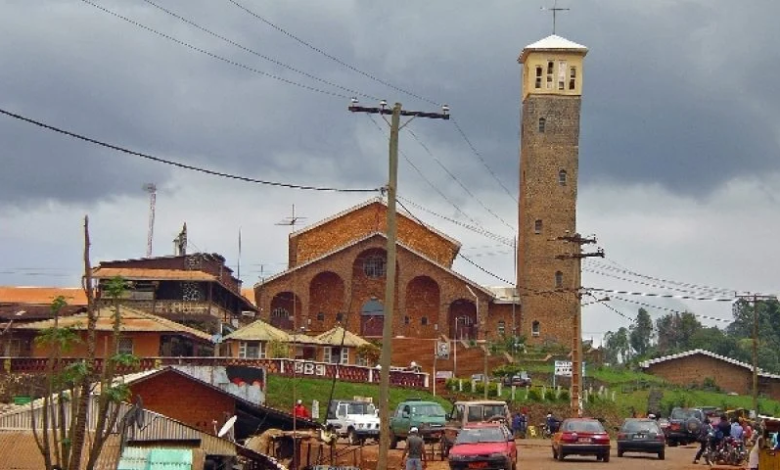Authorities Shut Down Market Accused Of “Terrorist Links” In Restive Cameroonian Region
Largest market in Bui region shuttered after mayor claims traders are financing separatist groups

Local authorities in a restive Cameroonian region have shut down a large market, saying terrorists were using it to raise money.
The mayor of Kumbo, the administrative centre of Bui division in the restive Northwest region of Cameroon, has signed an order closing down the Mbveh market, which is the largest in the municipality “until further notice”.
According to the mayor Mborong Vernatius Bongkiyung, the market has become “the source for financing terrorist activities in Kumbo” adding that some traders in the market collaborate with “the terrorists to generate revenue for them”.
“The population continues to pay a heavy price of privation, extorsion and torture in the hands of these criminals”, the mayor said, claiming it has become impossible to ensure basic services in the market.
As part of radical measures to retake control of the situation, the mayor has announced that all the traders have to confirm their identities and which businesses belong to them before the market can reopen. Mayor Bongkiyung said: “All the traders in and around Mbveh market are called upon to report in person to the Council Chambers for identification of the location of their businesses,” the mayor said..
Business people and customers have condemned this decision saying it limits their activities and puts them in danger because they would become pawns in the middle of the separatists and defence forces.
Separatists have been imposing “ghost town” orders, forcing the population to stay at home, while the state insists on the maintenance of a degree of normality.
In the other English-speaking region of the Southwest, former separatist fighters who laid down their arms and have been living in the disarmament, demobilisation and reinsertion centre in Buea, took to the streets on Oct 4 in protest saying they are tired of waiting for their reinsertion into normal civilian life.
The former combatants, who have been waiting in the Buea DDR centre for three years, condemned the slow pace at which their “social insertion” is being processed.
“Besides the delays and lack of action, we are not comfortable at the centre. The problem is not that of money but the length of time we spend at the centre. We the ex-combatants in the Buea DDR Centre want to be reintegrated into society. We are tired of remaining in the centre for all this long and all these years after the Grand National Dialogue, which took place three years ago”, one of the former separatist fighters, Nguni Celestin Yannick said.
Nguni Celestin said they feel concerned that the political leaders of the country and the centre would rather pay more attention to the budgetary allocation to the centre, which currently stands at 130 million FCFA (about 260,000 US dollars) than to their reintegration into society.
This is not the first time the former separatist fighters of the Buea DDR centre are publicly expressing their disquiet over their stay in the centre. In 2021, the former combatants publicly demonstrated on three occasions calling for an amelioration of their living conditions in the centre.
These protests led to the creation of new DDR centres where the ex-combatants would be trained in various trades to better prepare them for reinsertion into normal society.
The National Committee for Disarmament, Demobilisation and Reinsertion (CNDDR) was created by decree of the President of the Republic in 2018. Placed under the authority of the Prime Minister, it has its head office in Yaounde and its first regional centres were set up in Buea, Bamenda and Mora.
The NCDDR has as mission, to organise, train and manage the disarmament, demobilisation and the reinsertion of ex-combatants of Boko Haram and armed groups in the Northwest and Southwest regions who decide to lay down their arms.
The NCDDR is headed by former governor Fai Yengo Francis.
Support Our Journalism
There are millions of ordinary people affected by conflict in Africa whose stories are missing in the mainstream media. HumAngle is determined to tell those challenging and under-reported stories, hoping that the people impacted by these conflicts will find the safety and security they deserve.
To ensure that we continue to provide public service coverage, we have a small favour to ask you. We want you to be part of our journalistic endeavour by contributing a token to us.
Your donation will further promote a robust, free, and independent media.
Donate HereStay Closer To The Stories That Matter




